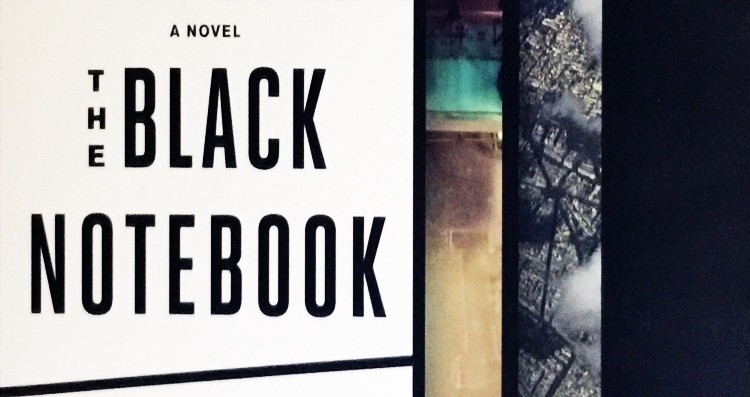Reading Lists
7 Novels Featuring Literary Translators As Characters
In these dark and messy portrayals, translators aren't the servants of an author or a neat metaphor for bridging cultural gaps

Translators are an incredibly vital part of the literary ecosystem—not only because they carry books from one language into another, but also because they are generally the ones who find and champion writers in other languages. They contribute to the circulation of ideas and narratives, as well as the formation of what we call “world literature.” Despite all this, translators are often underpaid, their names do not appear on the front covers of books, and their work is largely, as Lawrence Venuti wrote, invisible.
The protagonist of my debut novella, Prétend, is a young literary translator who goes by the names Jean, Jeanne, and John. Aside from engaging in translation, she herself is a translation, navigating multiple identities as she transgresses borders, genders, and languages. She translates poetry for her abusive husband, a very extreme example of an unhealthy translator-author relationship. Later, she starts to translate for another writer named M., who represents more experimental and liberated possibilities for translation. In writing this book, I was interested in dark and messy portrayals of translators, stories where the translator isn’t a servant of the author or a neat metaphor for bridging cultural gaps. Here are seven examples of literary translators in fiction that will give you a better appreciation and understanding of the art of translation.
Mauve Desert by Nicole Brossard, translated by Suzanne de Lotbinière-Harwood
Originally written in French and translated by the brilliant Suzanne de Lotbinière-Harwood, this is the novel that got me thinking deeply about translation and language. Mauve Desert is about Maude Laures, a professor from Québec who decides to translate a story she finds in a used bookstore. The novel is technically three books in one: the original Mauve Desert, a magical story of a teenage girl named Mélanie who is obsessed with driving her mother’s car around the Arizona desert, lesbians who work at a motel, and a villain named Longman who is also possibly Oppenheimer, Laures’ notes in preparation for the translation, including interviews with all the characters, and then finally, her translation of the story, allowing the reader to observe the differences from the original. Any one of the three parts would be worth a book in and of itself, but altogether they offer a queer, sensual, and immersive portrayal of the act of translation.
The Extinction of Irena Rey by Jennifer Croft
Croft is the translator of the award-winning Polish author Olga Tokarczuk, and a major public advocate for literary translators. Her second novel tells the story of celebrated author Irena Rey (she may or may not be based on Tokarczuk), who disappears in her home, the Białowieża Forest, a primeval forest stretching between Poland and Belarus. Eight of Rey’s adoring translators, referred to initially only by their mother tongues, go searching for her. Croft weaves translation together with topics like climate change, slime molds, and mythology to make a modern fairytale. Extinction highlights the power imbalances in published languages (especially the domination of English), and whether or not a translation stands on its own as a piece of art, playing with notions of authorship through the use of footnotes and multiple narratives. All in all, the book is a thought-provoking look at literary translation from one of the most talented living translators.
The Partition by Don Lee
The Partition tells the story of Ingrid, a queer Korean American adoptee whose bid for tenure at her liberal arts college is interrupted when a translation she published of a novel by the mysterious South Korean writer Yoo Sun-mi is called into question. When Sun-mi arrives in the United States to confront Ingrid face to face, we get a look at a very chaotic translator-author relationship, similar to the one in Prétend. The story raises important questions about who has the right to translate, the weight of identity and language expertise in translation, and the role of translators in helping authors get recognition and literary prizes.
My Husband by Maud Ventura, translated by Emma Ramadan
It makes perfect sense to me that the narrator of this novella, a woman whose immense love and passion for her husband teeters on the brink of hatred, is an English-to-French translator. She considers her words carefully, putting tremendous thought into every sentence. Like all writers, she has certain phrases she favors, as we see in her compulsive repetition of “my husband.” The narrator approaches translation the way she does everything in the novel, with an all-consuming fervor, and a need to maintain control. Reflecting on her translation of a young Irish novelist, she writes, “I entered into her mind and adopted her logic until the mechanics of the whole were revealed to me.” This is a woman with no boundaries between life and work; in a wildly unethical move, she even has her students practice translating transcriptions of private conversations with her husband. Make sure to read the epilogue, which, like a good translator’s note, throws everything into a different light.
Disorientation by Elaine Hsieh Chou
This dizzying, hilarious novel is the story of Ingrid, a Taiwanese American Ph.D. student who finds out the subject of her dissertation is actually a white man in yellowface pretending to be a Chinese poet named Xiaou-Wen Chou. We get a wickedly funny portrayal of a translator in Ingrid’s boyfriend, Stephen, the white American translator of the trendy Japanese author Azumi Kasuya. At first, Ingrid sees nothing wrong with Stephen translating Azumi’s work, beyond the fact that she is jealous of their proximity. But as she grows more politically and socially aware, Ingrid begins to take issue with Stephen’s history of only dating Asian women and his supposed authority on Japanese literature. Disorientation is not a subtle satire, but it never feels didactic because Chou expertly wields humor to make her point. When Ingrid starts asking questions about the prevalence of white translators in the Asian literary world, the reader is right there with her. As Lisa Hofmann-Kuroda put it in her essay, The Geopolitics of Japanese Literary Translation: “I am not saying the solution is for all white people to stop translating Japanese. But I am asking why it is that only white people are translating Japanese, still, today, and whether there are historical and structural reasons for that.”
Nevermore by Cécile Wajsbrot, translated by by Tess Lewis
Nevermore is the story of a woman who is consumed by grief, travels to Dresden, and decides to translate the section “Time Passes” from Virginia Woolf’s To the Lighthouse. The narrator finds resonances between different abandoned places where nature has reclaimed the land, such as the ruins of Chernobyl, the French village of Fleury, and the Scottish island Hirta, and the High Line in New York City. Wajsbrot showcases how the mind of the translator works, offering several possibilities for each sentence. As a whole her portrayal of translation is beautiful, treating it as a kind of healing. It’s also rooted in experience—Wajsbrot herself translated Woolf’s The Waves. Currently, the book is only available in French and German, but luckily for English readers, a translation by Tess Lewis is coming in November 2024.
Revenge of the Translator by Brice Matthieussent, translated by Emma Ramadan
In this madcap, meta novel by French translator Brice Matthieussent, a translator named Trad starts to take over and rewrite the novel, N.d.T, that he is supposed to be translating. Initially, he is limited to commentary in the footnotes, but slowly he breaks out of that barrier and the footnotes rise to include the entire page. Trad’s actions beg the question: at what point does translation become creative writing? The book becomes a layered power struggle between Trad, the author Abel Prote, and Prote’s characters, David Grey, also a translator, and Doris, a secretary. Emma Ramadan, who translated the book into English, put it best: “The book is an ode to translation in its unraveling, exploiting, and exploding of all existing tropes about translations and their translators.” Revenge will definitely make you rethink translation and in particular, the agency of the translator.









